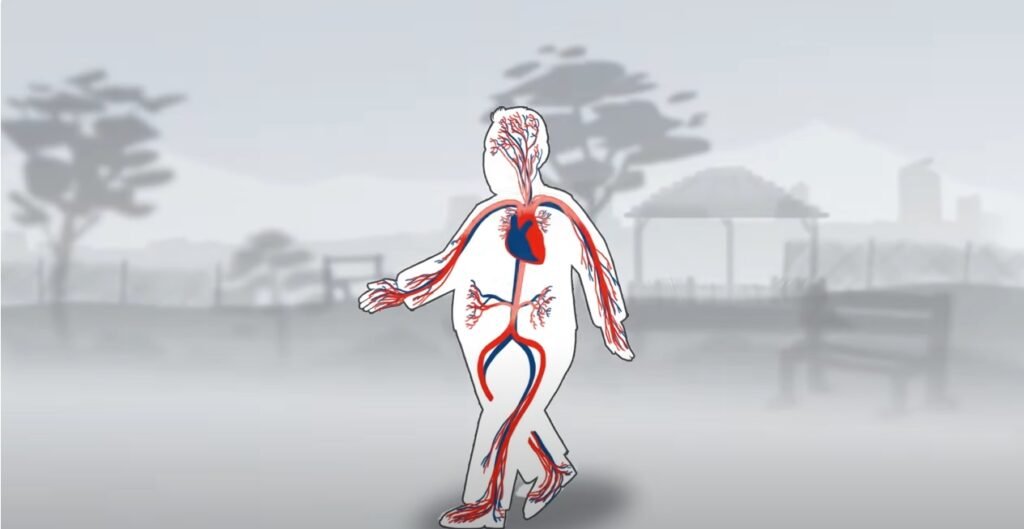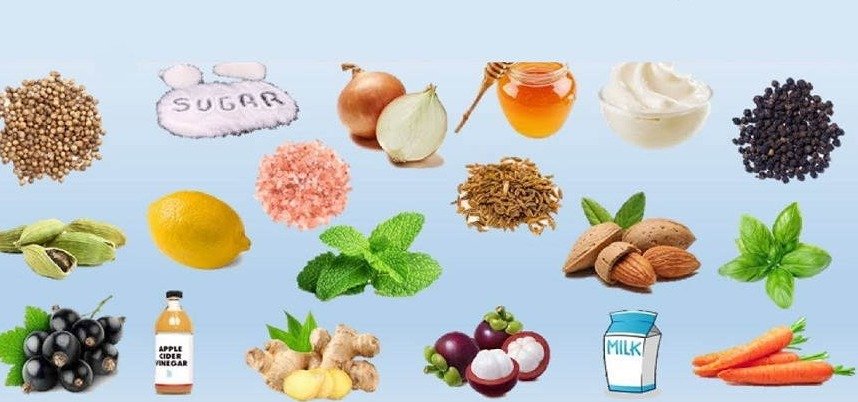Cholesterol, often depicted as the arch-nemesis of heart health, is a vital yet misunderstood component of the human body. Contrary to its negative reputation, cholesterol plays crucial roles in cellular function, hormone production, and nerve insulation. In this comprehensive guide, we delve into the intricate world of cholesterol, separating myths from facts and exploring actionable solutions for maintaining optimal health.
Demystifying Cholesterol:
Cholesterol serves as a fundamental building block for cell membranes, digestive juices, and key hormones like estrogen and androgen. Despite its necessity, elevated levels of cholesterol pose significant health risks, including cardiovascular diseases like heart attacks and strokes.
Understanding Cholesterol Levels:
The human body derives cholesterol from two primary sources: dietary intake and endogenous production in the liver. While cholesterol is essential for various bodily functions, excess levels, especially of low-density lipoprotein (LDL) cholesterol, contribute to plaque buildup in arteries, leading to atherosclerosis and increased risk of heart disease. Conversely, high-density lipoprotein (HDL) cholesterol exhibits protective properties by aiding in the removal of excess cholesterol from the bloodstream.
The Link Between Cholesterol and Heart Disease:

Decades of research have underscored the direct correlation between cholesterol levels and cardiovascular health. Landmark studies, such as those conducted by the National Heart and Lung Institute, highlight the efficacy of cholesterol management in reducing the incidence of heart attacks. For every one percent reduction in cholesterol, the risk of heart attack diminishes by two percent, emphasizing the critical importance of cholesterol regulation.
Addressing the Root Causes:
Hypercholesterolemia, or high cholesterol, often stems from dietary habits rich in saturated fats and cholesterol-laden foods. Fried foods, processed meats, and excessive consumption of dairy products contribute to elevated LDL levels, exacerbating cardiovascular risks. Lifestyle factors such as smoking, alcohol consumption, and chronic stress further compound the problem, necessitating comprehensive lifestyle modifications for effective cholesterol management.
Holistic Solutions for Cholesterol Control:
To mitigate the risks associated with high cholesterol, adopting a multifaceted approach is imperative. Dietary interventions, including reducing saturated fat intake and incorporating cholesterol-lowering foods like whole grains, legumes, and vegetables, form the cornerstone of cholesterol management. Additionally, regular physical activity, stress reduction techniques, and adequate hydration play pivotal roles in maintaining optimal cholesterol levels and overall cardiovascular health.
Embracing Natural Remedies:
Nature offers a plethora of remedies for cholesterol control, ranging from dietary supplements to hydrotherapy techniques. Lecithin, a phospholipid abundant in foods like egg yolks and soybeans, aids in cholesterol metabolism and bile acid production, facilitating its excretion from the body. Furthermore, vitamin-rich foods and herbal remedies like coriander water and yoga asanas offer holistic benefits for cholesterol reduction and cardiovascular wellness.
13 Cholesterol-Lowering Foods: A Comprehensive Guide to Heart Health

In the quest for optimal heart health, managing cholesterol levels is paramount. Cholesterol, a fatty substance produced by the liver, circulates in the bloodstream via lipoproteins. However, imbalances in cholesterol levels, particularly elevated LDL (low-density lipoprotein) or “bad” cholesterol, can pose significant health risks, including heart attack and stroke. While the body generates cholesterol internally, dietary choices play a crucial role in regulating cholesterol levels.
Understanding Cholesterol: The Basics
Before delving into cholesterol-lowering foods, it’s essential to grasp the fundamentals of cholesterol. LDL cholesterol tends to accumulate in artery walls, leading to plaque formation and increased risk of cardiovascular ailments. Conversely, HDL (high-density lipoprotein) cholesterol aids in transporting cholesterol from the bloodstream to the liver for elimination, hence earning the moniker “good” cholesterol.
1. Legumes: Nature’s Cholesterol Busters
Legumes, encompassing beans, peas, and lentils, emerge as dietary superheroes in the battle against high cholesterol. A 2021 study demonstrated that daily consumption of legumes significantly lowered LDL levels. Furthermore, legumes offer multifaceted health benefits, mitigating risks associated with obesity, diabetes, and hypertension.
2. Avocados: Creamy Allies in Cholesterol Management
Renowned for their rich monounsaturated fats and fiber content, avocados stand out as potent cholesterol-lowering agents. Research indicates that incorporating avocados into daily dietary patterns can lead to reductions in LDL cholesterol levels, thereby promoting heart health.
3. Nuts: Nature’s Nutrient-Dense Cholesterol Fighters
Walnuts, almonds, cashews, peanuts, and pistachios comprise a nutty arsenal against high cholesterol. These nutritional powerhouses not only lower LDL cholesterol but also exhibit anti-inflammatory properties, contributing to overall cardiovascular wellness.
4. Fatty Fish: Omega-3 Rich Champions of Heart Health
Fatty fish varieties like salmon and mackerel boast high levels of omega-3 fatty acids, instrumental in elevating HDL cholesterol and reducing LDL cholesterol. Incorporating fatty fish into regular meal plans aids in preventing cardiovascular diseases and metabolic syndrome.
5. Whole Grains: Fiber-Rich Guardians of Cardiovascular Health
Whole grains, such as oats and barley, abound in soluble fiber, which actively works to lower LDL cholesterol levels. Consuming three servings of whole grains daily significantly reduces the risk of heart disease and stroke, making them indispensable components of heart-healthy diets.
6. Fruits and Berries: Nature’s Sweet Solution to High Cholesterol
Fruits, especially those rich in soluble fiber like apples and strawberries, offer effective cholesterol-lowering benefits. Anthocyanins and phytosterols found in berries further enhance cardiovascular health by boosting HDL cholesterol and reducing LDL cholesterol levels.
7. Dark Chocolate and Cocoa: Delicious Delights for Heart Health
Dark chocolate and cocoa emerge as unexpected allies in the fight against high cholesterol. Studies indicate that their consumption leads to reductions in LDL cholesterol levels, attributed to the presence of polyphenols and resveratrol.
8. Garlic: Flavorful Weapon Against Elevated Cholesterol
Garlic, revered for its potent plant compounds, demonstrates cholesterol-lowering properties in various studies. Incorporating garlic into culinary creations not only enhances flavor but also promotes heart health by reducing LDL and total cholesterol levels.
9. Soy Foods: Plant-Based Champions for Heart Wellness
Soybeans and soy products like tofu and soybean oil offer a cholesterol-lowering alternative to animal-derived foods. While research yields mixed results, incorporating soy into dietary habits presents a promising avenue for managing cholesterol levels.
10. Vegetables: Nutrient-Rich Allies in Cholesterol Control
Vegetables, brimming with fiber, antioxidants, and essential nutrients, play a pivotal role in maintaining optimal cholesterol levels. Their incorporation into daily meals fosters better LDL, HDL, and total cholesterol profiles, contributing to overall heart health.
11. Tea: Steeped in Heart-Healthy Benefits
Green tea, black tea, and white tea harbor potent plant compounds known to lower LDL and total cholesterol levels. Catechins found abundantly in tea exert anti-inflammatory and antioxidant effects, safeguarding cardiovascular wellness.
12. Dark Leafy Greens: Green Giants Against Cholesterol
Dark leafy greens like kale and spinach offer a nutritional arsenal against high cholesterol. Lutein and carotenoids found in these greens bind to bile acids, facilitating cholesterol excretion and reducing the risk of heart disease.

13. Extra Virgin Olive Oil: Liquid Gold for Heart Health
A cornerstone of the Mediterranean diet, extra virgin olive oil boasts heart-healthy properties, particularly in elevating HDL cholesterol levels. While its impact on LDL cholesterol remains under scrutiny, incorporating olive oil into culinary endeavors promotes overall cardiovascular wellness.
Conclusion: Nourishing Your Heart with Cholesterol-Lowering Foods
Incorporating cholesterol-lowering foods into your daily diet lays the foundation for robust heart health. From legumes to dark leafy greens, each food item discussed offers unique benefits in managing cholesterol levels and reducing the risk of cardiovascular diseases. By embracing a balanced diet rich in these nutrient-dense foods, you embark on a journey towards optimal heart wellness and overall well-being.